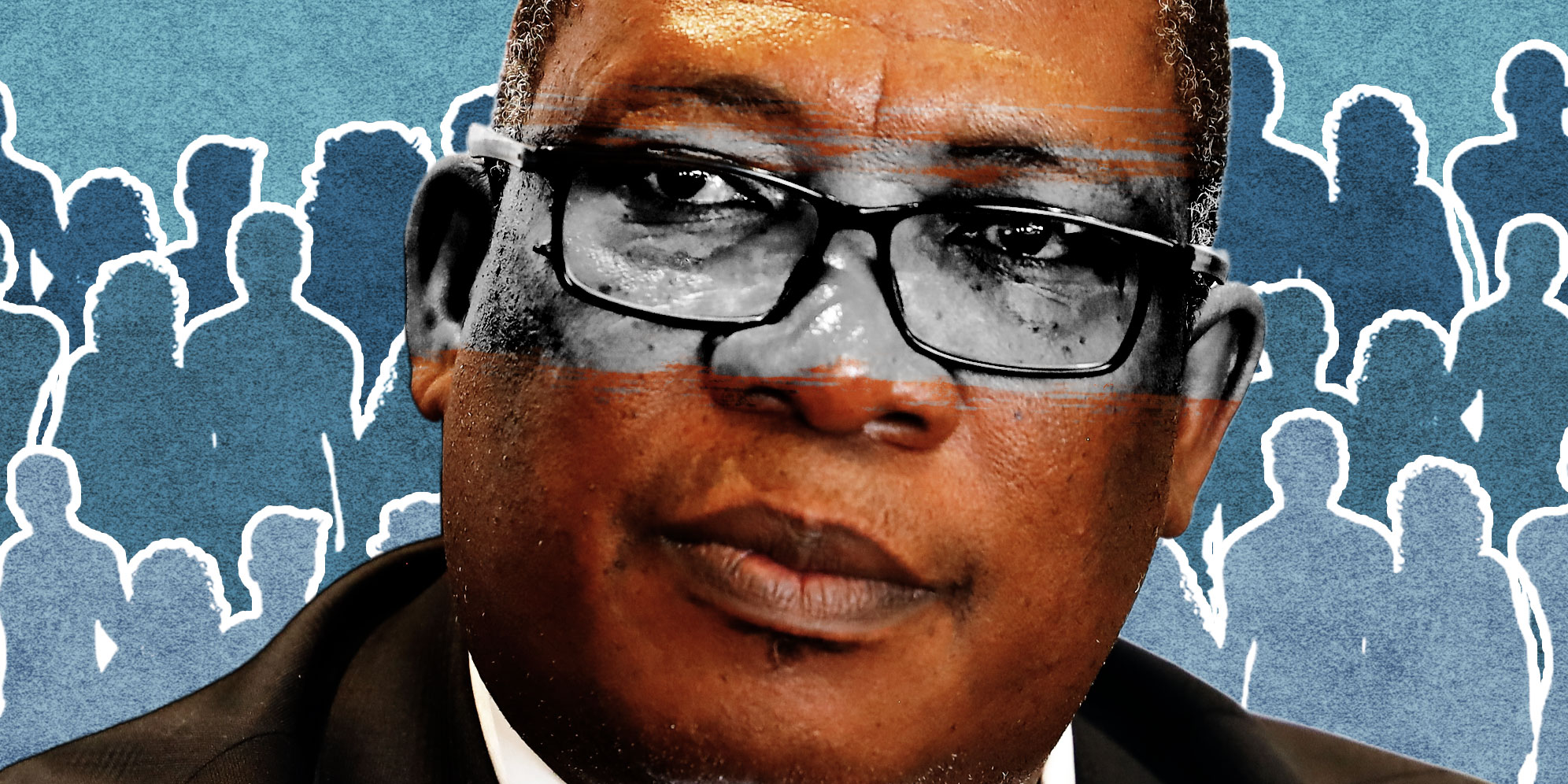
Last week, seemingly out of nowhere, Gauteng Premier Panyaza Lesufi announced that the “amaPanyaza” were being disbanded, with wardens leaving the service and becoming traffic wardens.
Several hours later, the Public Protector’s decision, finding that they had been established illegally, was released.
It was obvious that Lesufi was getting ahead of the announcement.
Doing it in this way was a cowardly way to simply avoid facing the music he had brought upon himself.
It also showed that the various warnings, including from Mark Heywood in this publication, were correct. Lesufi and his officials did not have the legal authority to establish the service that came to bear his name.
Instead of facing questions about that, Lesufi ducked it.
Read more: Calls for Lesufi’s removal after Gauteng Crime Prevention Wardens disbanded
Unfortunately, the reasons that drove Lesufi to do this are still very much present in our society.
As has been sadly detailed many times, violent crime exploded after the pandemic, and while the rate is slowing, many millions of people live under the threat of violence.
This means that the scope for populism in our society is only going to grow.
Opposition turns populist
ActionSA leader Herman Mashaba has selected a man known only for violently confronting people identified as drug dealers by residents on TV, as his mayoral candidate for Ekurhuleni.
Xolani Khumalo has had murder charges against him for one such incident dismissed. But it is entirely possible that the National Prosecuting Authority will reinstate those charges.
He will not be the last person selected by a party to represent them based on their previous public profile.
Much has been made of a by-election result in Soweto, where the Patriotic Alliance was able to win a ward from the ANC. While it is possible that too many people are making too much of this (the PA’s candidate won just 1,756 votes – that’s just one and a half WhatsApp groups), it is likely to inspire more populism.
Read more: PA shocks ANC in Soweto and Swellendam, ActionSA notches historic ward win in North West
The PA has espoused populist causes and wants to bring back extreme punishment for criminals.
Some in the ANC and elsewhere are likely to see this as a good reason to be more populist, not less.
At the same time it must not be forgotten how the balance of our politics has changed.
The rise of the uMkhonto Wesizwe party (MK) party, linked to the mobilisation of ethnic identities, shows how fertile the ground is for such populism.
MK believes the Constitution should be abolished and that traditional leaders should be in Parliament making laws.
While its main message is obviously linked to ethnic identities, this kind of populistic message obviously played a role with many voters.
Meanwhile, the EFF, which has suffered major setbacks in recent times, is still trying to use populism to win votes. Julius Malema’s conviction for firing a semi-automatic rifle into the air is only likely to incite him to push that much harder against the Constitution and the rule of law.
Coalition challenges
Meanwhile, many parties that are now involved in actual governance in coalitions where they are trying to increase their influence, are finding it hard going.
Last week, the Tshwane mayor, ActionSA’s Nasiphi Moya, had to try to explain payments made to water tanker operators in the city.
Considering the long and sordid history of the “water tanker mafia” (people who deliberately sabotage water supply systems so they can win contracts to supply communities with water), the cynicism around her explanation is real.
Moya depends on the ANC to remain in office. She might well be in a position in which she is relying on officials who are not loyal to her, but to the party.
In Joburg, the ANC’s mayor, Dada Morero, fresh from holding a ceremony to reopen a road that was in fact still closed, is still unable to appoint a city manager. It is clear he wants to reappoint Floyd Brink to the job, but must also know that he’s on very weak legal ground.
These difficulties in governance are likely to lead more parties down the populist road.
Small parties, big rewards
At the same time, the declining percentage of people who vote also makes the prize of electoral office easier to win. As the voter pool contracts, you only have to win a smaller number of votes.
This means that smaller interest groups suddenly have a lot more power.
All of this means that many parties, and their leaders, have much to gain from using populism.
Since many lack imagination, they are likely to turn on the usual suspects.
Read more: An appeal beyond apartheid political identities is the route to political dominance
More parties will make promises of action against foreign nationals. Others will join the bandwagon to reinstate the death penalty. Still others will join those who believe the Constitution should be abandoned, a road that ultimately leads to rule only by the mighty.
And still others, including those in power through the ANC, will look for populist projects such as the amaPanyaza to try to demonstrate that they are going to improve the lives of voters.
Some of these projects will be incredibly wasteful, while others will be inherently destructive.
The damage caused by the amaPanyaza project is not yet clear. Lesufi may well have opened the province to huge liability: some of the wardens might well be able to argue in court that they were placed in danger with very little training, some residents might show they were the victims of wardens who abused their illegal power.
But this may be only the beginning. Populism is now likely to be more powerful in our society than it ever was before. DM




 Illustrative image | Gauteng Premier Panyaza Lesufi. (Photo: Gallo Images / Sharon Seretlo) | Crowd. (Image: Freepik)
Illustrative image | Gauteng Premier Panyaza Lesufi. (Photo: Gallo Images / Sharon Seretlo) | Crowd. (Image: Freepik)